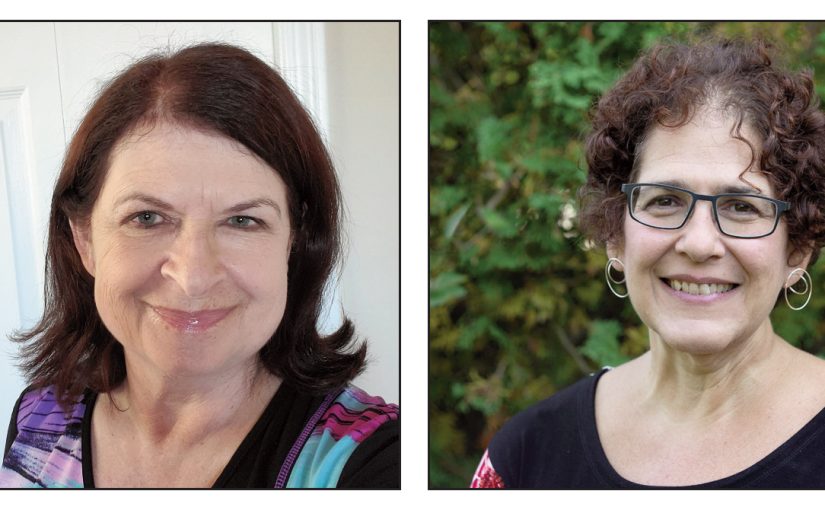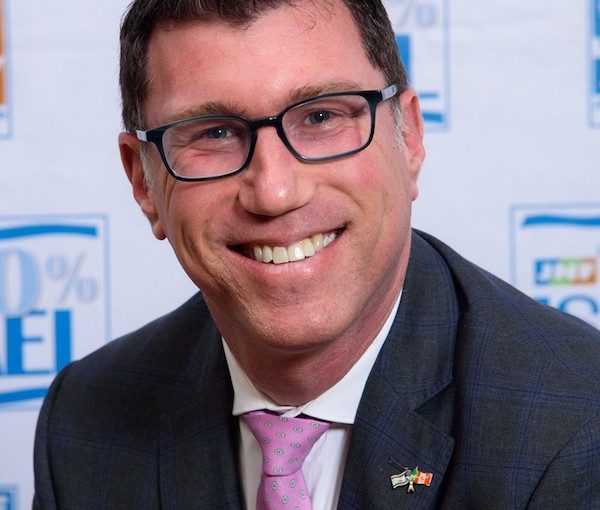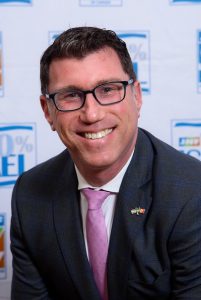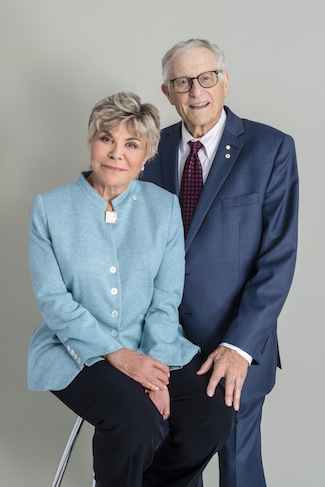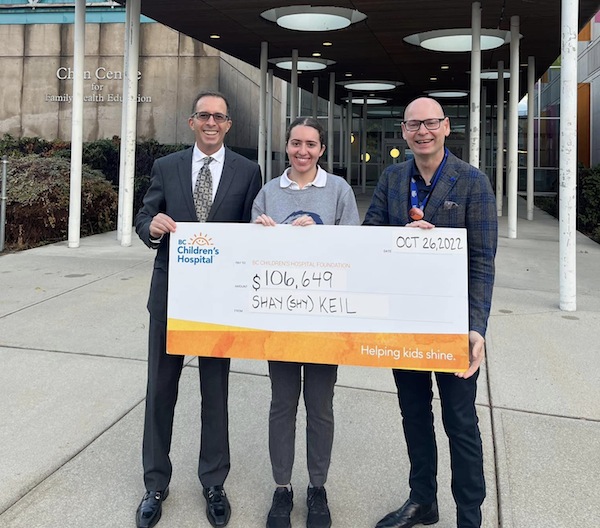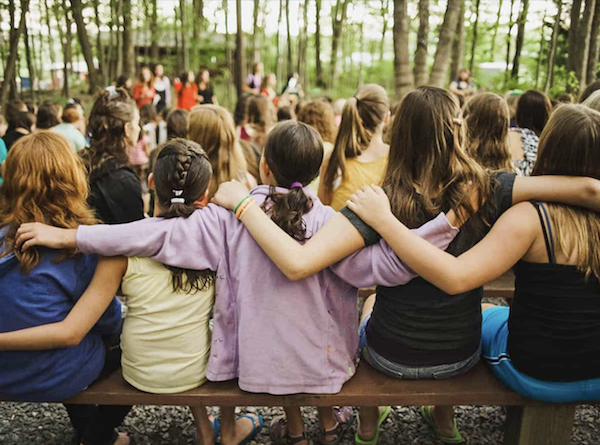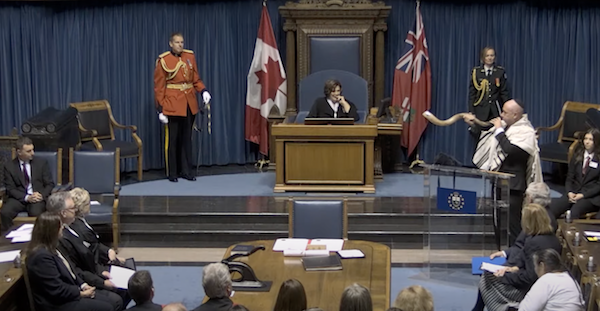As of last Friday, June 16, the population of Canada surpassed 40 million people. According to data from the 2021 Canadian census released last year, 335,295 Canadians consider themselves to be Jewish by religion, up from 329,500 in 2011.
The 2021 census also asked about ethnic or cultural origin. In this instance, the number of people choosing Jewish as their ethnic or cultural origin (or one of several) decreased from 2011 to 2021, from 309,650 to 282,015, though the number increased in British Columbia, from 31,865 in 2011 to 34,395 a decade later. This article focuses on Jews by religion.
More than half of Canadian Jews live in Ontario, home to 196,100 Jews, while an additional quarter (84,530) live in Quebec. British Columbia’s 26,845 Jews are 8% of the national Jewish population. Other provinces with significant Jewish populations are Alberta, with 11,565 Jews, and Manitoba, with 11,390. Smaller Jewish communities exist in Nova Scotia, with 2,195 Jews, Saskatchewan, with 1,105 Jews, and New Brunswick, where 1,000 people listed their religion as Jewish.
In Canada, approximately 12,000 Jews (3.6%) identify as a visible minority, including 2,615 Black Jews, 1,505 Latin American Jews, 1,270 South Asian Jews and 1,155 Chinese Jews. Those numbers in British Columbia are 1,425 overall, including 235 Latin American Jews, 200 Black Jews, 170 Chinese Jews and 150 South Asian Jews.
British Columbia is home to the fastest-growing Jewish population in Canada, adding 3,715 Jewish residents since 2011, representing 16% growth. By comparison, Canada added 5,795 Jews to the national population, growing 1.8%. Ontario’s Jewish population only grew 0.3%, while Quebec’s Jewish population declined by 0.7%, making it the only province whose Jewish population decreased over the 10-year period. Western provinces recorded more robust growth: 6% in Alberta, 2.5% in Manitoba and 17.5% in Saskatchewan.
Home to a combined three-quarters of Canada’s Jews, the metropolitan areas of Toronto and Montreal both saw a decline in their Jewish population over the past decade. Meanwhile, Metro Vancouver’s Jewish population grew from 18,730 in 2011 to 20,125 in 2021, an additional 1,395 Jews. Elsewhere in Canada, Greater Ottawa’s Jewish community expanded, as did the metropolitan areas of Winnipeg, Calgary and Edmonton.
Even though their metropolitan Jewish populations decreased over the last decade, the municipal Jewish populations of Toronto and Montreal both grew slightly, suggesting a Jewish movement away from the suburbs and towards the city. Vancouver’s municipal Jewish population also grew during the same period, from 10,350 to 11,675, allowing it to surpass both Winnipeg and Ottawa to become the third-largest Jewish municipal population in Canada. While the City of Vancouver’s share of the B.C. Jewish population decreased slightly over the past decade, from 44.7% in 2011 to 43.5% in 2021, its percentage of Greater Vancouver’s Jewish population grew from 55% to 58%. Greater Vancouver is home to 75% of British Columbia’s Jews, down from its share of 81% in 2011.
Other B.C. cities with sizable Jewish populations include Richmond, whose 2,515 Jews make it the second-largest Jewish municipality in the province, and Surrey, where 900 people reported their religion as Jewish – although both cities’ Jewish populations declined since 2011. The District of North Vancouver had 845 people reporting Jewish as their religion in 2021 and Burnaby 620, both increases from 2011; and West Vancouver had 555, which was a decrease from 665 in 2011. Beyond the Lower Mainland, Victoria’s Jewish population grew from 550 to 960, Saanich’s Jewish community increased from 555 to 750, and the Jewish population of Kelowna more than doubled, going from 215 in 2011 to 530 in 2021.
In addition to provincial, metropolitan and municipal data, the 2021 census also provided information about electoral ridings. Vancouver Granville was the electoral riding with the largest Jewish population in Vancouver (3,275), while Vancouver Quadra was a close second (3,125), although the Jewish population of both ridings decreased since 2011.
Vancouver Granville remains home to 27.5% of Vancouver’s Jews, while Vancouver Quadra is home to 26% of the city’s Jewish population. The Jewish population of four other electoral ridings – Vancouver Centre, Vancouver East, Vancouver Kingsway and Vancouver South – all increased significantly, suggesting a population shift from Vancouver’s West Side to Downtown and East Vancouver. Using these electoral ridings as an approximate guide, 54% of Vancouver’s Jews live in the West Side, 27% live in East Vancouver and 19% live in Downtown Vancouver. By comparison, 64% of Vancouver’s Jews lived in the West Side in 2011, 20% lived in East Vancouver and 16% lived Downtown.
Along with religion, the Canadian census also gave information about language. Canadians who can speak Hebrew increased from 70,695 in 2011 to 83,205 in 2021, while Canadians who can speak Yiddish decreased from 23,750 to 20,155 over the same period. More than half of Hebrew-speaking Canadians, 47,380, live in Ontario, while more than half of Yiddish-speaking Canadians, 12,825, live in Quebec. Hebrew speakers in British Columbia increased from 4,505 in 2011 to 6,995 in 2021, while Yiddish speakers in the province declined from 540 in 2011 to 480 in 2021.
While the 2011 census only provided information about languages spoken, the 2021 census also gave information about Canadians’ mother tongues. In 2021, 19,595 Canadians spoke Hebrew as their first language. Meanwhile, 12,060 Canadians spoke Yiddish as a first language. In British Columbia, 2,260 people spoke Hebrew as a mother tongue in 2021, while 215 listed Yiddish as their first language.
To find out more of the census results, including immigration and other statistics, visit www12.statcan.gc.ca/census-recensement/index-eng.cfm and click on census datasets (1981-2021).
Michael Rom is Social Sciences and Humanities Research Council postdoctoral research fellow at the University of British Columbia. He received a PhD in history from Yale University, and has also held research fellowships at the Centre for Jewish History in New York City, the University of Cape Town and the University of São Paulo. His research examines Brazilian Jewish politics during the Cold War.

